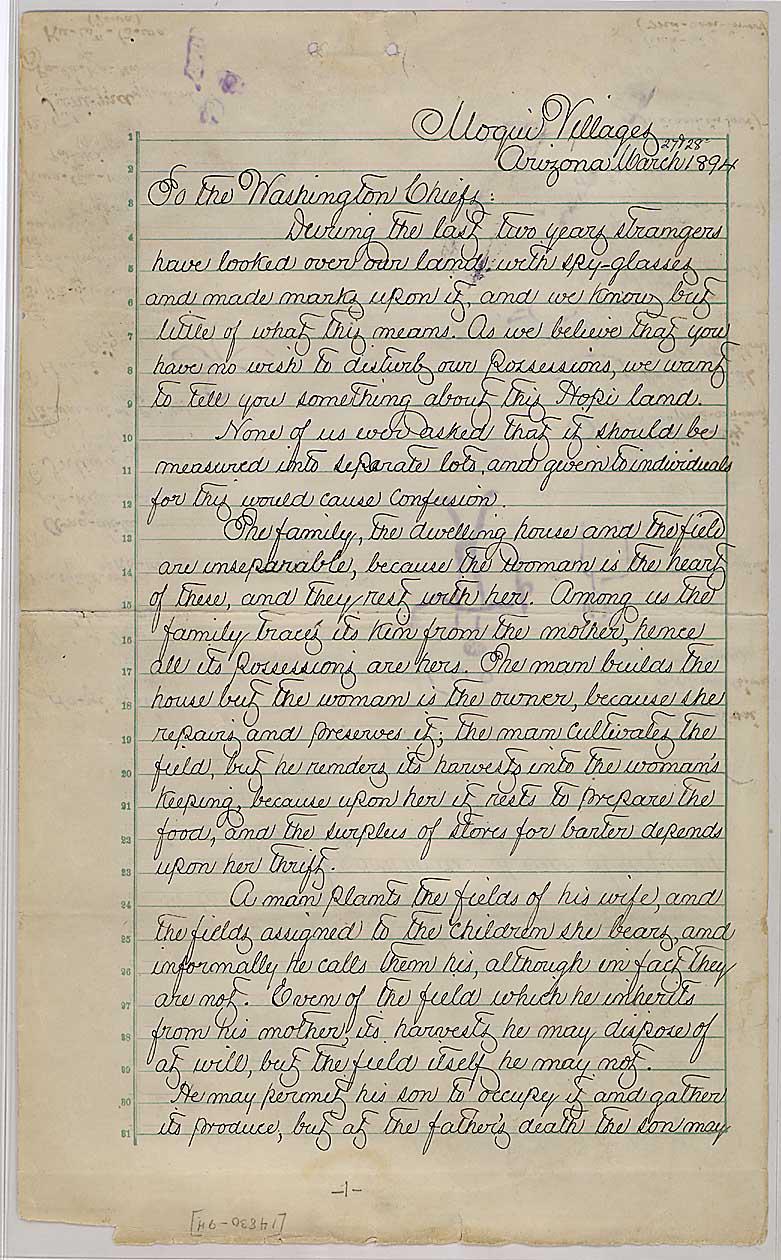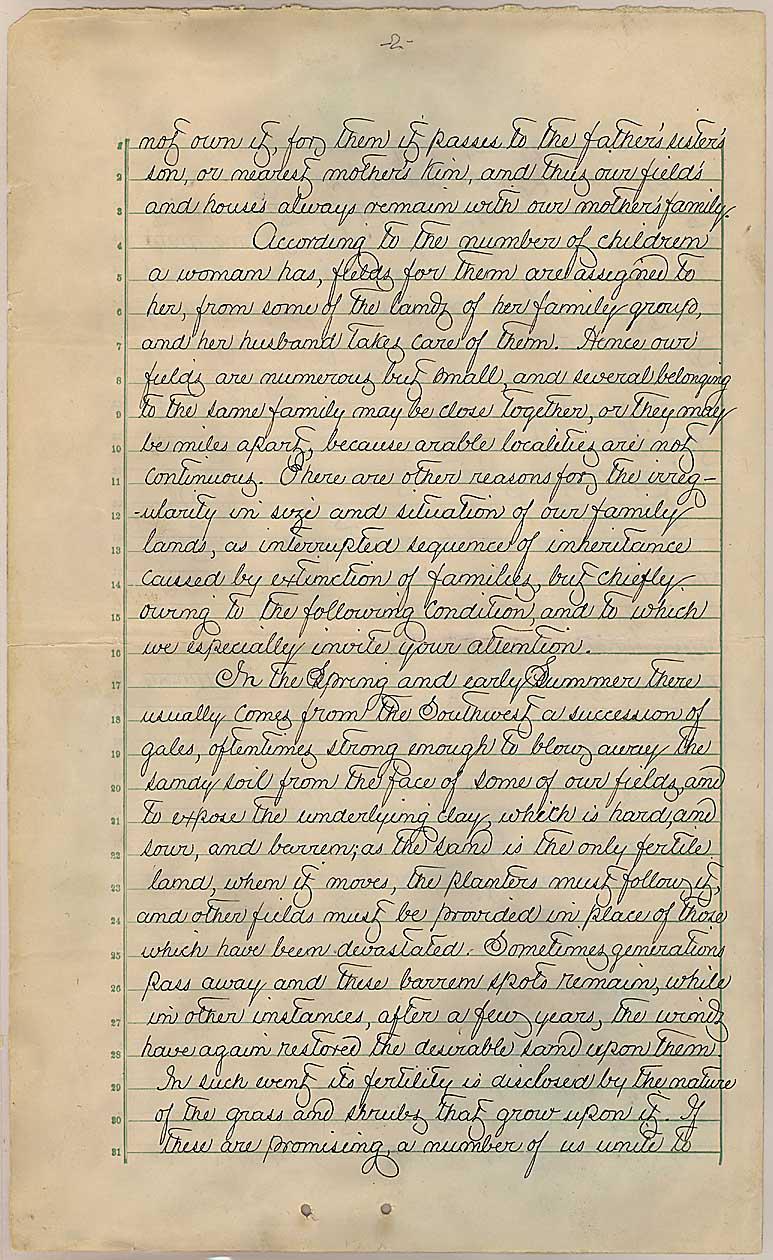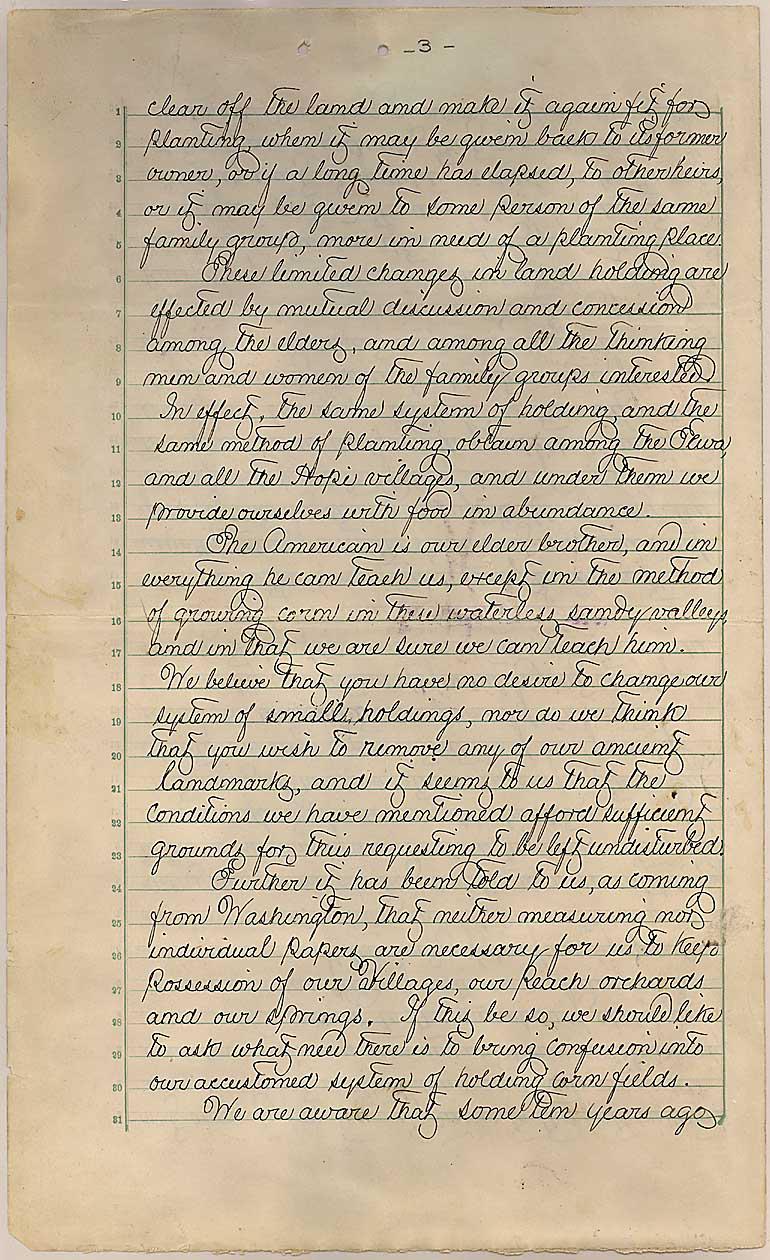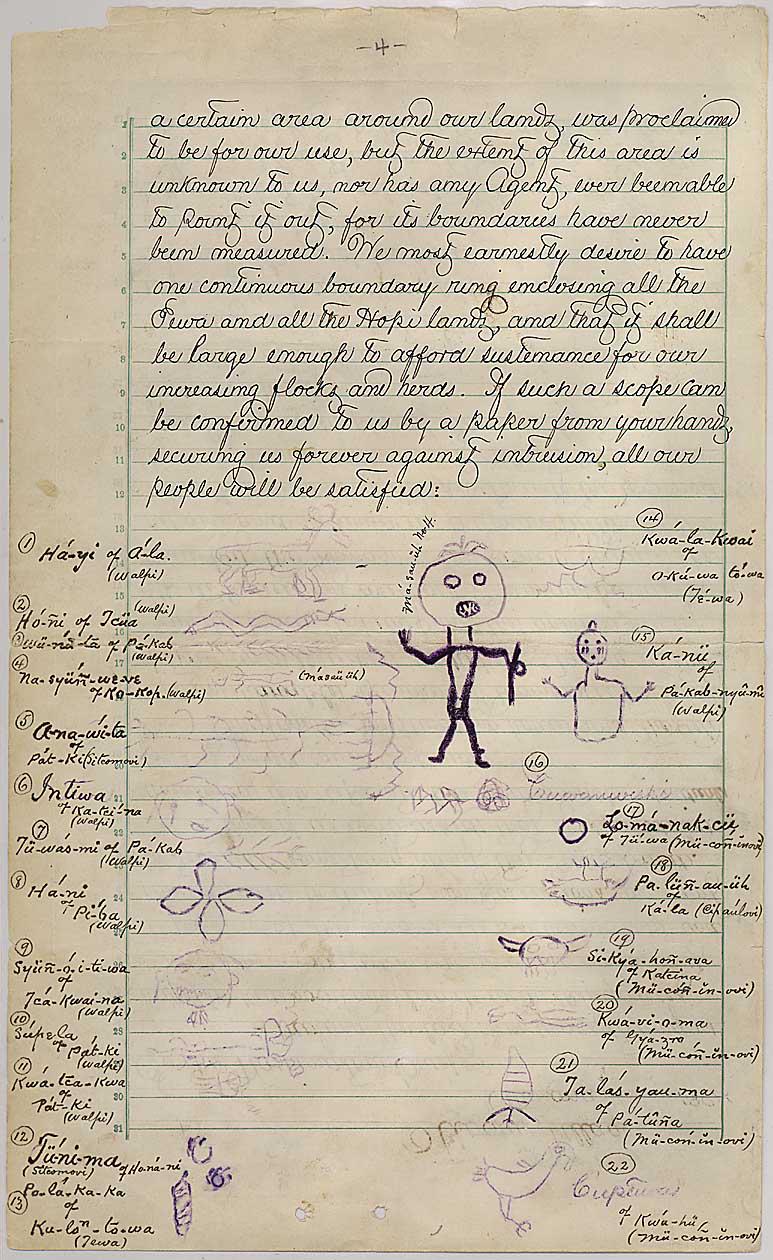The Vault is Slate’s new history blog. Like us on Facebook, follow us on Twitter @slatevault, and find us on Tumblr. Find out more about what this space is all about here.
These are four pages of an 1894 petition, sent from a group of Hopi Indians to the American government. Ten additional pages of pictogrammed signatures follow, as well as detailed explanations of the meanings of these totems, which represented the chiefs and leaders of the Moqui pueblos in the Arizona Territory.
The Dawes Act of 1887 decreed that the government should assign portions of land to Native Americans on an individual basis (“in severalty”). The avowed aim of the law was to secure land for male tribal members as the West was rapidly settled. But, as with other policies of the period—including the creation of boarding schools that separated Native American children from their tribes—the government’s goal was also to kill former ways of life (in this case, communal farming) by substituting new ones.
The petition is in the hand of Thomas Keam, a recent English immigrant who ran a trading post in the Arizona Territory. In an accompanying letter, Keam attested that the head of every family in the tribe had signed.
“During the last two years, strangers have looked over our land with spyglasses,” the petition begins. Voicing uneasiness with these developments, the petition goes on: “None of us ever asked that it should be measured into separate lots, and given to individuals for this would cause confusion.”
The author explains the matriarchal system of inheritance that the tribe had evolved, and the special characteristics of the land, which suffered from occasional windstorms that blew away the sandy topsoil, rendering sections temporarily barren. This meant that families had to be prepared to farm non-contiguous sections, and to shift their labor around.
The petitioners strike a conciliatory tone but firmly request to know why they shouldn’t be able to continue to use their tried-and-true ways: “The American is our elder brother, and in everything he can teach us, except in the method of growing corn in the waterless sandy valleys, and in that we are sure we can teach him.”
While the government made no official response to this petition, in his 1894 report to the Bureau of Indian Affairs, the acting agent, E.H. Plummer, reported that the work of parceling out Moqui land in individual allotments had gone nowhere. The tribe’s non-compliance and remoteness effectively scuttled the plan.
Conflicts between the Hopi and government agents over other policies, including forced attendance at boarding schools, continued.



